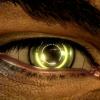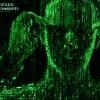Figure 3: Dihexa reverses scopolamine-dependent spatial learning deficits.
Group latencies to find the submerged platform in the Morris water maze task of spatial memory are shown.
20 minutes before beginning testing 3 month old male Sprague Dawley rats were given
scopolamine directly into the brain (icv) and 15 minutes later
dihexa was given either icv, intraperitoneally (ip), or orally.
There were 5 trials per day for 8 days.
The latency to find the pedestal was considered a measure of learning and memory.A.Rats were pretreated with icv
scopolamine (70 nmol in 2 μl aCSF) 20 min prior to
training followed by the icv infusion of
dihexa (0.1 or 1 nmol in 2 μl aCSF) 5 min prior to daily training.
A two-way ANOVA with repeated measures indicated that all time points for the 1nmol
dihexa groupwere different from the
scopolamine group, which received vehicle (aCSF) instead of dihexa (***p<.001).
The lower, 0.1nmol, dose of dihexa was also significantly improved performance when compared to the scopolaminegroup on days 5-8 of testing (*p<.05).
B. Rats were pretreated with icv
scopolamine (70 nmol in 2 μl aCSF) 20 min prior to training
followed 15 minutes later by an ip injection of
dihexa in DMSO (<1%) at .05mg/kg, .25mg/kg, or .50mg/kg.
A two-way ANOVA with repeated measures indicated that the latency curves for dihexa at .25mg/kg and
.50mg/kg were different than the scopolamine►aCSF group’s learning curve
(***p<.001).
The .50mg/kg group was not different than the vehicle control group(p>.05) while the .05mg/kg dihexa group was not different than the scopolamine group (p>.05).
C. Rats were pretreated with icv
scopolamine (70 nmol in 2 μl aCSF) 20 min
prior to training
followed by
oral delivery (gavage) of dihexa at 1.25/kg and 2.0mg/kg .25mg/kg (suspension in isotonic NaCl), 5 min prior to daily training.
The high oral (2 mg/kg) dose of dihexa completely reversed the scopolamine-dependent learning deficit(***p<.001) while the effect of scopolamine was partially reversed at the 1.25 kg/mg dose on days 3-8 (p<.01). aCSF= artificial cerebrospinal fluid. Mean +/-SEM; n=8-10

Edited by hadora, 31 March 2013 - 08:56 AM.




















































